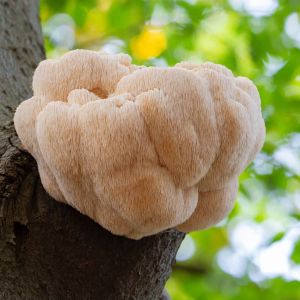Health benefits and risks of mushrooms
What Are the Health Benefits and Risks of Mushrooms. Mushrooms offer a variety of health benefits and, like many foods, have potential risks associated with their consumption.
- Decrease the risk of cancer
- Lower sodium intake
- Promote lower cholesterol
- Protect brain health
- Provide a source of vitamin D
- Stimulate a healthier gut
- Support a healthy immune system
Health benefits
- Nutrient-dense: Mushrooms are a low-calorie, fat-free source of various vitamins and minerals, including B vitamins (riboflavin, niacin, pantothenic acid), selenium, copper, phosphorus, and potassium. They also contain fiber and a significant amount of protein compared to most vegetables.
- Antioxidant power: Mushrooms are rich in antioxidants, notably ergothioneine and glutathione, which combat cellular damage from free radicals and support immune function. Research suggests this antioxidant content may contribute to reduced cancer risk and cognitive protection.
- Immune system support: The antioxidants, selenium, vitamin D, and vitamin B6 in mushrooms may help boost immunity and protect against various infections, according to WebMD.
- Potential anti-cancer effects: Studies suggest that regular mushroom consumption is associated with a lower risk of cancer. Certain varieties like shiitake and reishi are even explored for their potential role in cancer treatment, says Cedars-Sinai.
- Cardiovascular health: Mushrooms’ potassium content helps regulate blood pressure, while fiber and beta-glucans may help lower cholesterol and reduce the risk of heart disease.
…These statements have not been evaluated by the Food and Drug Administration. This product is not intended to diagnose, treat, cure, or prevent any disease. Always consult with a healthcare professional before adding new supplements or natural products to your routine, especially if you are pregnant, nursing, or have existing medical conditions. Our Turkey Tail Mushroom is a dietary supplement meant to support general wellness.
Risks
- Mushroom poisoning: Consuming poisonous wild mushrooms can cause severe illness, including gastrointestinal upset, organ failure (liver and kidneys), and even death. Identifying edible mushrooms is crucial, and it’s best to avoid foraging unless you are an expert.
- Allergic reactions: Some individuals may be allergic to mushrooms, experiencing symptoms ranging from hives and rashes to difficulty breathing and anaphylaxis. Cross-reactivity with other fungi or molds can also occur.
- Potential foodborne illness: Improper handling or storage of mushrooms can lead to contamination with bacteria like Salmonella or Listeria, resulting in food poisoning. Ensure proper sanitation and cooking practices for safe consumption. National Health Institute Library.





